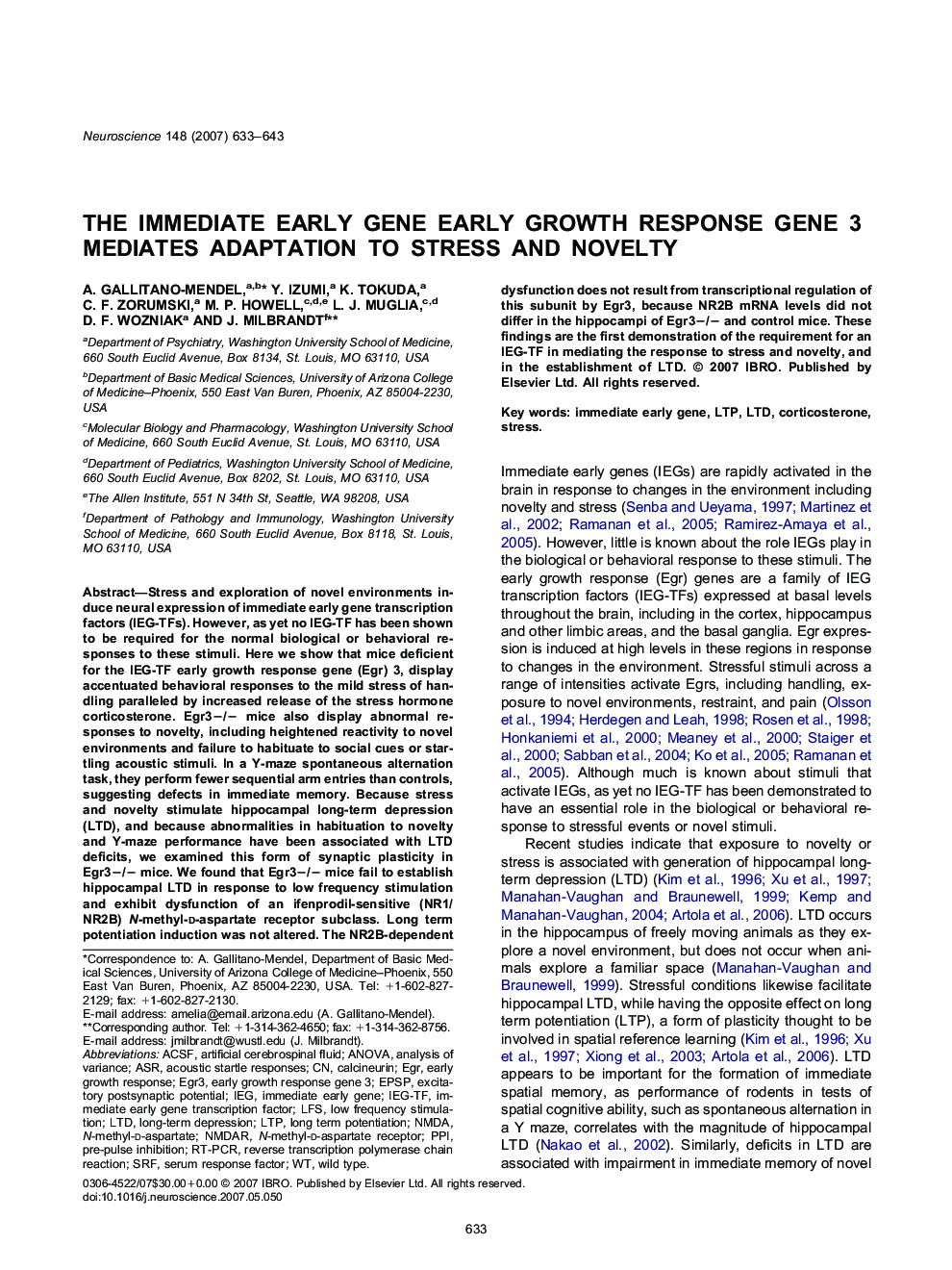| Article ID | Journal | Published Year | Pages | File Type |
|---|---|---|---|---|
| 4342572 | Neuroscience | 2007 | 11 Pages |
Abstract
Stress and exploration of novel environments induce neural expression of immediate early gene transcription factors (IEG-TFs). However, as yet no IEG-TF has been shown to be required for the normal biological or behavioral responses to these stimuli. Here we show that mice deficient for the IEG-TF early growth response gene (Egr) 3, display accentuated behavioral responses to the mild stress of handling paralleled by increased release of the stress hormone corticosterone. Egr3â/â mice also display abnormal responses to novelty, including heightened reactivity to novel environments and failure to habituate to social cues or startling acoustic stimuli. In a Y-maze spontaneous alternation task, they perform fewer sequential arm entries than controls, suggesting defects in immediate memory. Because stress and novelty stimulate hippocampal long-term depression (LTD), and because abnormalities in habituation to novelty and Y-maze performance have been associated with LTD deficits, we examined this form of synaptic plasticity in Egr3â/â mice. We found that Egr3â/â mice fail to establish hippocampal LTD in response to low frequency stimulation and exhibit dysfunction of an ifenprodil-sensitive (NR1/NR2B) N-methyl-d-aspartate receptor subclass. Long term potentiation induction was not altered. The NR2B-dependent dysfunction does not result from transcriptional regulation of this subunit by Egr3, because NR2B mRNA levels did not differ in the hippocampi of Egr3â/â and control mice. These findings are the first demonstration of the requirement for an IEG-TF in mediating the response to stress and novelty, and in the establishment of LTD.
Keywords
IEGNMDAN-methyl-d-aspartateEgr3aCSFSRFNMDARRT-PCRPPILFSEGRASREPSPStresslong-term depressionlow frequency stimulationanalysis of varianceANOVAlong term potentiationLTPserum response factorartificial cerebrospinal fluidLTDpre-pulse inhibitionwild typereverse transcription polymerase chain reactionearly growth responseexcitatory postsynaptic potentialimmediate early geneCalcineurinCorticosteroneN-methyl-d-aspartate receptor
Related Topics
Life Sciences
Neuroscience
Neuroscience (General)
Authors
A. Gallitano-Mendel, Y. Izumi, K. Tokuda, C.F. Zorumski, M.P. Howell, L.J. Muglia, D.F. Wozniak, J. Milbrandt,
